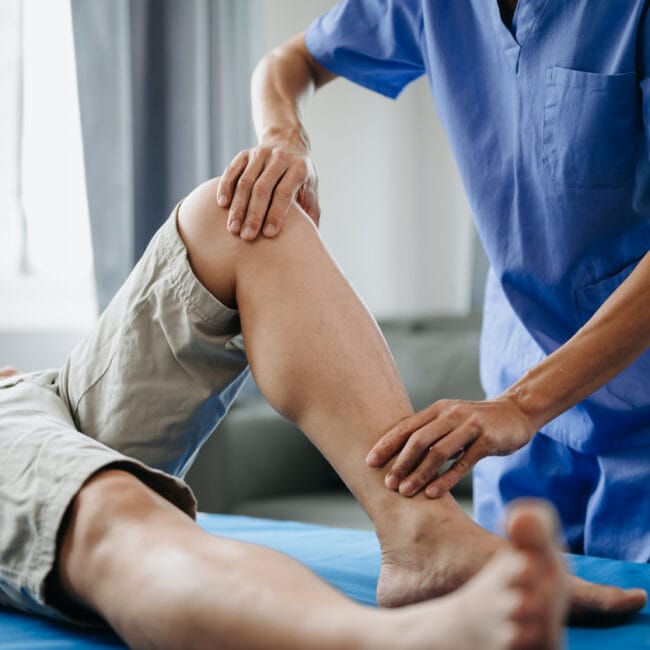
April is Irritable Bowel Syndrome Awareness Month, and despite the fact that IBS is not something most people would like to discuss, it’s nothing to be embarrassed about. In fact, an estimated 10-15% of the global population is thought to have IBS, so the condition is more common than most of us realise.
Anyone can develop IBS at any time in their lives, although most cases will begin before age 50. It is not known exactly what causes IBS, but we do know that it can be managed with proper diet and exercise. Below are five tips for each to help you gain more control over the condition.
Breakfast
The most important meal of the day is also the most important meal in tackling symptoms of IBS. Your stomach is at its peak and ready to start digesting in the morning, so eating breakfast is an effective way to get it off on the right foot.
Fibre
One of the most common symptoms of IBS is regularly switching between feelings of constipation and diarrhoea. While there could be any number of foods triggering these symptoms, insoluble fibre has possibly the biggest effect. Insoluble fibre (such as cereal, as opposed to fruit) plays a big role in determining the consistency of bowel movements, so reducing or increasing your intake could help alleviate either symptom.
Eat Small
Most of us are used to getting roughly three meals a day, maybe with the odd snack break. Splitting these into several smaller meals that are more evenly spread throughout the day not only makes it easier for the stomach to digest, but reduces any potential irritation as well. The more scheduled these meals are, the better your stomach can deal with them.
Slow Down
Many people, regardless of whether or not they have IBS, like to wolf down a meal as fast as they can. This irritates the stomach in three ways: first, the faster you eat, the more air you will trap in your stomach, which can lead to stomach pain. Secondly, by not properly chewing your food, and instead asking your stomach to essentially digest the food whole, you are placing it under unnecessary strain. Finally, eating too quickly will mean you eat more before feeling full, again placing extra pressure on the stomach.
Identify Problem Foods
One of the most frustrating aspects of IBS is its apparent randomness. You could eat the same thing two days in a row, and have completely different reactions. A good idea to address this is to keep a food diary, and not how you feel each day. Then try to identify any problem foods, and cut them out for 12 weeks. It may not be the case that there is a specific problem food, but this can help clarify the situation.
30 Minutes a Day
Exercise helps keep your body functioning at maximum performance, so almost any exercise will have some beneficial effects on your stomach. A study conducted specifically with IBS patients found that exercising for 30 minutes a day, five times a week dramatically improved abdominal pain, constipation, and diarrhoea. The benefits here are twofold, as exercising for 30 minutes a day has also been proven to reduce stress, which can exacerbate IBS.
Exercise at the Same Time
Just like eating, exercising at a specific time each day helps your body get into a routine, making all its tasks considerably easier to carry out. You should always exercise at least an hour away from any meals, or your stomach could become even more irritated.
Don’t Venture too Far
At least not in the beginning. The likelihood is that exercise will be more irritating than you’d like at the beginning, so it’s not a bad idea to ease yourself into a full 30 minutes by starting off slow. Going for a walk is probably the best way to start the routine, but remember that you are likely to feel irritated. Don’t venture too far from a public bathroom until you get a feel for the effect exercise is having on you.
Stay Hydrated
One of the side effects of diarrhoea is that a lot of water is lost. Hydration is very important when it comes to IBS in general, but especially so while exercising. Water is a safer bet than the likes of smoothies or a sports drink, which could contain any number of irritants. To style up the water a bit, feel free to add some slices of citrus fruit, and freeze the bottle when it is half full. Then just top it off with water, and you have a fresh drink that thaws as you go!
Rest
Many people dealing with IBS experience sleep problems. Once again, the best approach for this is to develop a rigid schedule, and stick to it. Relax an hour before bed, and get up as soon as you wake up. Don’t spend your days lying in bed either. Use it exclusively for sleeping, and avoid bad habits like eating in bed or staring at your phone.
IBS Awareness Month takes place in April every year. To learn more about the campaign, please click here.














